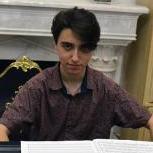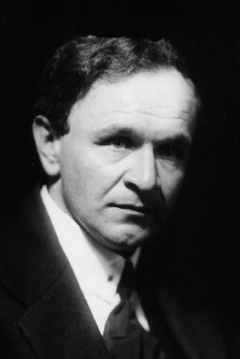Search the Community
Showing results for tags 'the hidden music files'.
-
Hello everyone, This is hopefully going to be the first of many posts on the lives and music of rare romantic composers. This series can be thought of as a continuation to my post entitled "The Rare Music Conundrum", and is meant to widen the audience attraction to forgotten romantic-era musical geniuses. I hope it's something that interests you, and you can learn something from. This installment is about the life and music of Soviet-Ukrainian composer, pianist, and teacher Viktor Kosenko (1896-1938). Kosenko was born in St. Petersburg to a large family, but moved soon after to Warsaw. Though musically gifted, he only began music lessons in 1905. He was preparing to enter the Warsaw Conservatory, when the First World War began, which forced him and his family to leave Poland for Russia. He studied at the St. Petersburg Conservatory, where he excelled in his studies, and received excellent evaluation from the faculty, including from Alexander Glazunov. At this time, he also began to compose, writing works for piano. After graduating, he moved to Zhytomyr, where he began teaching at the local academy, and where he married his wife, who became one of his main sources of inspiration. Here, he also began to perform and organize concerts, promoting fellow Ukrainian composers in the process, and was an active member in much of the musical life of Soviet Ukraine. With the arrival of Stalin's regime, he moved to Kiev, where he taught, performed, took part in local music competitions, and, above all, composed. Despite his activity in the world of music in Ukraine, he lived very poorly for most of his adult life, often being forced to share living quarters with other families. Due to insistent persuasion from his wife, the Soviet Government finally awarded Kosenko with the Order of the Red Banner for his efforts in the promotion of Ukrainian nationalistic music. Several months later, in a poor state, Kosenko died from kidney cancer, aged only 41. His wife continued to promote his music long after his death. The music of Viktor Kosenko, in my opinion, is of the highest quality. His music was in the vein of the late romantic era, and possesses deep emotional value, and contains elements of Ukrainian folk-song, as well as melodic, harmonic, and formal clarity. He wrote in most genres, including symphonic music, chamber music, concertos, solo music, vocal music, and even film music. His music is only performed with some frequency in Ukraine; everywhere else in the world, he is practically unheard of. The YouTube channel Pentameron describes his work nicely in this text: "Kosenko's life is conclusively divided into three distinct phases, in Warsaw, where he studied with renowned teachers Mikhail Sokolovsky and Iryna Miklashovskaya, in Zhytomyr, where he began teaching piano and music theory at the Music Technicum, later becoming director of the Zhytomyr Music School, and finally in Kiev, where he devoted more time to symphonic compositions such as his Heroic Overture, which brought him due recognition in the world of Soviet music. A true artist in the very sense of the word, he was a leading figure among the broad-minded artistic collective of the 20th-century Soviet music. Kosenko's legacy is filled with romantic feeling and intonations of Slavic folk songs and Western-European influences. His vocal, chamber and symphonic works are among the most important pieces of that time in USSR. He composed over 100 compositions for piano among waltzes, preludes, nocturnes, sonatas and mazurkas, in a total of about 250 musical works such as his symphonic Moldavian poem, violin and piano concertos, trios and string quartets during his short musical career. His vocal compositions include a large number of ballads, choral and folk arrangements as well." His music most definitely deserves to be heard in much greater number than at present. Among his more well-known works include the 11 Etudes in the Form of Old Dances, Op. 19 (which includes a masterful Passacaglia), 24 Pieces for Children, Op. 25, the Piano Concerto in C minor, the "Classical" Piano Trio in D major, and Mazurkas and Poems for piano.
- 4 replies
-
- rare composers
- the hidden music files
-
(and 1 more)
Tagged with:


